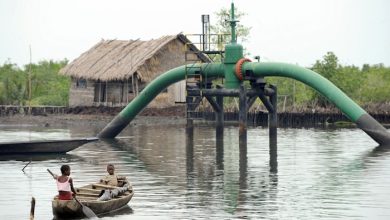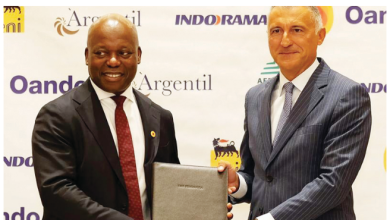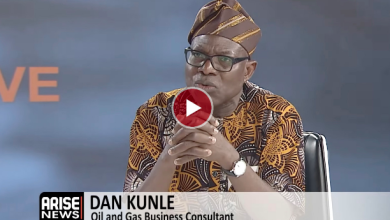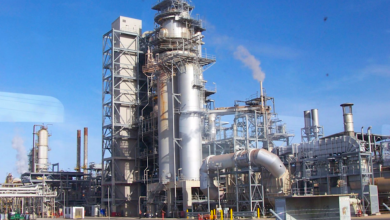Business
Nigeria on track to hit 2 million barrels per day by 2027 – NNPC
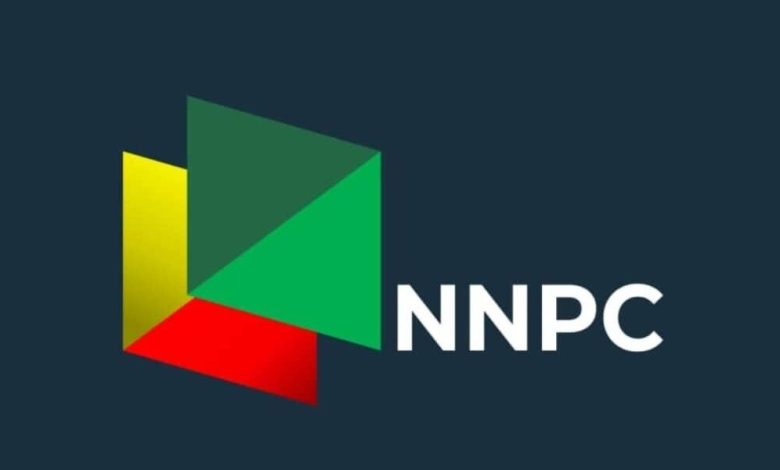
Nigeria is steadily progressing toward achieving a crude oil production target of two million barrels per day (bpd) by 2027 and three million bpd by 2030, the Nigerian National Petroleum Company Limited (NNPC Ltd.) has announced.
The disclosure was made by Mr. Udy Ntia, Executive Vice President, Upstream, NNPC Ltd., during his presentation titled “Beyond the Barrel: The Future of Upstream Strategy” at the ongoing 2025 Abu Dhabi International Petroleum Exhibition and Conference (ADIPEC) in the United Arab Emirates.
ADIPEC, widely regarded as the world’s largest energy exhibition and conference, is hosted by the Abu Dhabi National Oil Company (ADNOC).
Now in its 41st edition, the event runs from November 3 to November 6, bringing together international, regional, and local stakeholders across the energy, technology, and finance sectors under the theme “Energy. Intelligence. Impact.”
Speaking at the conference, Ntia said Nigeria’s upstream growth strategy hinges on three key pillars: technology, efficiency, and decarbonisation. “Nigeria’s upstream sector is evolving through collaboration, co-investments, and smarter capital deployment rather than competition.
“It is not just about producing more oil; it is about producing better oil more efficient, cleaner, and more profitable, ” he said.
Highlighting the importance of innovation, Ntia pointed to Artificial Intelligence (AI) and digital technologies as critical tools for improving efficiency and unlocking value from mature oil fields.
“We are seeing technology as an enabler to get more from the ground, improve efficiency, and guide capital decisions. The goal is smarter investment, not just more spending,” he said.
On energy transition and decarbonisation, Ntia stressed that NNPC Ltd. and its partners remain committed to reducing emissions while maintaining responsible oil production.
“Africa contributes less than three per cent of global emissions. We can decarbonise and still produce responsibly,” he noted, citing initiatives such as monetisation, flare reduction, and regulatory compliance through commercial partnerships.
Ntia also outlined ongoing projects aimed at enhancing Nigeria’s gas infrastructure, including the Nigeria-Morocco Gas Pipeline and connections to demand centres in western and northern Nigeria.
He also underscored the significance of refinery optimisation and the development of hybrid partnerships for co-investment in upstream projects.
“Co-investment is the new round of financing.We are stepping in as co-investors to ensure projects are bankable and decisions are made quickly in a rapidly changing environment, ” he said.
Ntia further emphasised that partnership-driven growth between National Oil Companies (NOCs) and International Oil Companies (IOCs) is critical to achieving sustainable development in the sector.
“IOCs are not grabbers; they are partners. We all share the same goal profitability, sustainability, and growth.
”The real question is how we can increase the size of the pie so that everyone wins,” he added.
Reaffirming NNPC’s commitment to balancing energy security, profitability, and climate responsibility, Ntia notes that Nigeria’s upstream strategy ensures the nation’s oil resources remained relevant amid a global energy transition, positioning the country as a key player in the evolving international energy landscape.
